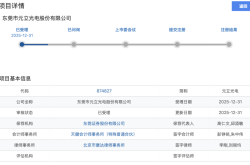Wei Jianjun is not the antidote for Great Wall Motors' new energy challenges
![]() 08/23 2024
08/23 2024
![]() 640
640
Where is Great Wall Motors heading?
Text
"I have to say, the cars Wei Jianjun makes are really conscientious."
This was said by a nearly 50-year-old owner of a Tank 500 during my interview with him.
From a subjective perspective, I deeply admire Mr. Wei Jianjun.
As a "rich second generation," Wei Jianjun saved Great Wall Motors from the brink of collapse in the 1980s and personally built this vast automotive empire.
As the "Baoding Car God," Wei Jianjun truly turned his hobby into a career. He has ideals and passions, and he is not only a successful businessman but also an idealist who pursues his passions to the extreme.
However, it is precisely this idealist who missed many development opportunities for Great Wall Motors in the era of new energy.
Great Wall Motors faces many uncertainties in 2024
All automotive companies will make an annual sales plan based on market conditions and their own development as the new year approaches. Great Wall Motors has set an annual sales target of 1.9 million vehicles.
However, by July, Great Wall Motors' cumulative sales for the first seven months were only 651,000 vehicles, representing a completion rate of only 34% of the annual sales target of 1.9 million vehicles. With less than five months left in 2024, can Great Wall Motors sell at least 1.249 million new vehicles in these months?
Let's take a look at Great Wall Motors' recent sales growth rate.
In July 2024, Great Wall Motors sold approximately 91,300 vehicles, a decrease of 6.93% month-on-month and 16.32% year-on-year. This was the second consecutive month since May that Great Wall Motors' monthly sales declined both month-on-month and year-on-year, marking three consecutive months of year-on-year declines.
In fact, judging from this downward trend, Great Wall Motors faces a severe situation this year. Although it is not yet at risk of being eliminated, the problems of shrinking market size and slowing growth are realities that Great Wall Motors must face.
So, why is Great Wall Motors facing this situation today? Is it a product issue or a problem with the company's underlying strategy? Can these issues be resolved? I believe these questions need to be openly discussed.
Focusing on products and technology, why can Great Wall Motors only be a follower?
Great Wall Motors has competed in this market for many years, and its materials and quality have been recognized by the market.
It is precisely based on its quality advantages that Great Wall Motors has accumulated a good market reputation and sales in the fuel era.
We will not discuss too much about why Great Wall Motors has succeeded.
The recent decline in sales faced by Great Wall Motors is actually a common issue arising from industry iteration. It is not unique to Great Wall Motors, but also affects many joint venture automakers.
In simple terms, manufacturers like Great Wall Motors, which primarily focus on fuel, have not experienced rapid upgrades and transformations in their products and technologies after entering the new energy era, losing the opportunity for early development and becoming followers in the industry. The cost of being a follower is a decline in influence.
On August 21, Wei Jianjun returned to the stage of a press conference after six years, bringing with him a heavyweight model within the Great Wall Motors system - the all-new Blue Mountain from WEY.
At the press conference, Wei Jianjun himself mentioned that Great Wall Motors has been investing in intelligence for ten years. However, in the early stages, Great Wall Motors' intelligent cockpit system had numerous issues and offered a poor user experience. The all-new Blue Mountain launched by Great Wall Motors relies on its full-stack self-research capabilities to improve every intelligent aspect and enhance the user experience.
Recently, I also had the opportunity to experience WEY Blue Mountain's Coffee OS 3 intelligent cockpit system in person. I must admit that the in-car system of this flagship SUV feels excellent, with smooth screen operation, a rich online ecosystem, and responsive intelligent voice control.
However, the problem lies in the fact that both the Coffee OS 3 intelligent cockpit system and the third-generation intelligent driving system, Coffee Pilot Ultra, were launched too late.
In contrast, the Lixiang L8, equipped with advanced intelligent driving and cockpit systems, was launched two years ago. Similarly, the AVALON 11, equipped with the HUAWEI ADS intelligent driving system, was launched in August 2022.
The golden era for the development of advanced intelligent technologies in the industry was from 2022 to 2023. Automakers such as AITO, AVALON, and Lixiang seized this opportunity during this period and gained the initiative in the market.
Great Wall Motors' slow response in the intelligent new energy industry reflects a problem within the corporate leadership - a lack of forward-thinking regarding this industry.
Mr. Wei Jianjun has repeatedly expressed views critical of new energy, such as "new energy is a Chinese strategy, not a foreign one," "Great Wall Motors will achieve overtaking through fuel technology," and "electric motors lose torque when slow." These personal views have influenced decision-making throughout Great Wall Motors. As a result, while Great Wall Motors excels in fuel pickups and off-road vehicles, it has missed the opportunity to develop in the important new energy segment.
So, where lies the root problem? In my opinion, it lies with the decision-makers at Great Wall Motors.
The mindset of the older generation must change within Great Wall Motors!
In my personal opinion, Great Wall Motors' vehicle manufacturing model has distinct personal characteristics.
For example, since Chairman Wei Jianjun enjoys motorcycles, Great Wall Motors introduced a high-displacement motorcycle brand called SOUL; since Chairman Wei Jianjun once held a heavy truck driver's license and has a passion for heavy trucks, Great Wall Motors also plans to launch heavy truck tractors...
In fact, the current modus operandi of Great Wall Motors bears some resemblance to that of Ford in the 1960s.
Mr. Wei Jianjun shares a similar "charisma" with Henry Ford II. Such a corporate operating model would have been popular in the market half a century ago and would have undoubtedly turned a car brand into a timeless classic.
However, from the perspective of the 2020s, it is not difficult to identify weaknesses in this automaker's operating mindset.
In simple terms, Great Wall Motors' current approach to vehicle manufacturing is actually at odds with the demands of the general public for automotive products. While Great Wall Motors has invested significant effort in developing its 3.0T V6 engine and 9AT transmission, which may bring prestige, the high energy consumption associated with large-displacement engines is not acceptable to all consumers.
As for Great Wall Motors' primary markets in off-road vehicles and pickups, while they have distinct characteristics, they remain niche when faced with segments such as new energy sedans and SUVs, making it difficult to form a large-scale development wave. According to statistics, Great Wall Motors' Tank off-road brand sold 13,500 vehicles in July, while the Lixiang L6 alone sold 24,900 vehicles in the same month. The volume difference cannot be ignored.
The crucial issue is that the management of Great Wall Motors has yet to identify the reasons for its declining sales.
Last year, Great Wall Motors accused BYD of falsifying fuel tank information, believing that BYD had violated industry self-discipline and rules. This year, Wei Jianjun made statements calling for a full-industry audit to uncover any issues, accusing some automakers of cheating and urging an industry-wide investigation. He even criticized Li Ruifeng for not doing a good job in his own marketing efforts...
It seems that Mr. Wei Jianjun attributes Great Wall Motors' declining sales to the issue of "someone cheating."
It cannot be denied that in the era of vicious competition in the automotive industry, some individuals have indeed resorted to cheating and even compromised product quality and safety in the pursuit of price wars.
However, are these external issues truly the root cause of Great Wall Motors' Stage Failure Stage by Stage setbacks?
Obviously not!
Great Wall Motors faces issues of inconsistency and lack of perseverance in its new energy vehicle operations.
For example, Great Wall Motors' Ora brand, specializing in premium electric compact cars, was hastily discontinued due to factors such as "unprofitability" and "lack of profits" despite its growing sales. To this day, the Ora brand has fallen from its former position as an industry leader to a niche brand.
In addition to Ora, Great Wall Motors' futuristic electric vehicle brand Saloon Automobiles, which was meant to showcase a unique design style, was also aborted without further development.
A traditional automaker will inevitably encounter difficulties when embarking on the new energy journey.
The correct approach would be to persevere or actively transform, as Volkswagen and Toyota have done. Great Wall Motors' approach of giving up when faced with difficulties is difficult for outsiders to understand.
Regarding the statements about "some automakers cheating and calling for a full-industry audit to uncover issues," I would like to counter: Does cheating by others have a direct impact on Great Wall Motors' new energy strategy?
Great Wall Motors should look inward for the reasons behind its declining sales in the new energy era. If Great Wall Motors had deployed new energy technologies earlier, it would have gradually established a market presence, similar to other leading automakers. If Great Wall Motors remained a leading player in the new energy era, would Mr. Wei Jianjun still make such critical statements?
To put it bluntly, the problems faced by Great Wall Motors ultimately stem from Chairman Wei Jianjun himself.
If Great Wall Motors had entrusted its operations to professional and reliable executives, as Geely has done, the current situation might not have arisen. It is precisely for this reason that many in the industry lamented the departure of Ms. Wang Fengying from Great Wall Motors.
If Ms. Wang Fengying were still at Great Wall Motors, the company's development strategies and high-level decisions might not be as extreme and stubborn as they are now.
Final Thoughts:
Personally, I have a fondness for the Great Wall Motors brand.
It is one of the few Chinese automakers that still creates vehicles for enthusiasts.
However, the first 30 years of Great Wall Motors' development came too easily. It reaped the benefits of China's rapidly growing automotive industry and quickly rose to prominence. However, in the face of changing times and industry transformations, the "conservative mindset" within Great Wall Motors continues to pursue "financial stability and inheritance." Precisely because of this rigid mindset, Great Wall Motors has been slow to respond to the new era.
In my opinion, the various challenges currently faced by Great Wall Motors could be an opportunity.
This opportunity may prompt Mr. Wei Jianjun to realize that his thinking and decision-making are too rigid and conservative. Once Mr. Wei Jianjun truly recognizes this, Great Wall Motors will undoubtedly usher in a new round of rapid development.






